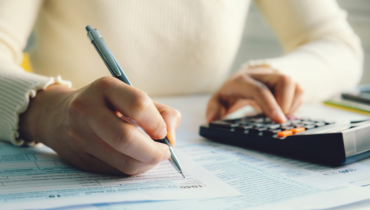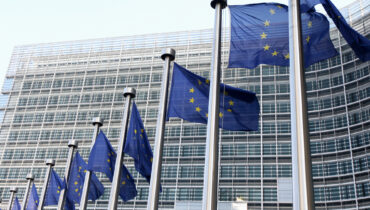Are you a company not established in France that imports goods into France? If so, from 2022 onwards, you must have a French VAT number and use the reverse charge mechanism on your French VAT return. A reminder of the old rules and why you need to have a French VAT number and use the reverse charge mechanism in France. The consequences for companies importing goods in France, we’ll explain it all!
Until the 31st of December 2021, using the VAT reverse charge mechanism for imports was not mandatory.
As a matter of principle, VAT was settled at customs. This means that:
- Businesses registered with a French VAT number in France settle the VAT at customs. They deduct the VAT on their French VAT return (CA3).
- Companies importing goods to France without a French VAT number were responsible for clearing VAT at customs and recovering the VAT via a refund application. The so-called 8th directive (for companies established in the European Union) or 13th directive (for companies established outside the European Union).
Subject to meeting certain conditions and making a request to the authorities, companies importing goods to France who were registered for French VAT could request a reverse charge on the French VAT return form (CA3).
From January 1st 2022, the VAT reverse charge mechanism on import is mandatory for businesses importing goods in France
Businesses must register for VAT in France in order to use the reverse charge mechanism on the import of goods.
From 2022, the management, collection and control of VAT due on imports will be transferred to the tax authorities.
VAT due on import is no longer settled at customs and the VAT reverse charge mechanism on import becomes mandatory.
So, all companies importing goods into France must obtain a French VAT number to reverse charge their VAT on the French VAT return (CA3).
Companies must include their French VAT number on customs documents to complete the import.
If you are a company importing goods into France, you must have a French VAT number from January 2022.
Otherwise, your goods could be blocked in customs.
No worries! EASYTAX and its VAT tax representation service ensures your VAT registration in France and takes care of your returns.
Putting the new rules into practice
Here are some examples of situations where companies established or not established in the European Union must register for VAT in France because of the imports they carry out there:
Example 1: Sales in France under the DDP (Delivery Duty Paid) incoterm
A company established in the United States sells and delivers goods under the DDP incoterm to its French end customer. The use of this incoterm implies that the US company pays import duties and taxes and completes customs import formalities.
From 2022 onwards, in order to pay this VAT on import, the American company must appoint a tax representative in France, obtain a French VAT number and declare the import VAT due on a French VAT return.
Example 2: Storage of goods in France
An Italian company wishes to import goods from China into France to store them and resell them afterwards.
From 2022 onwards, in order to import goods into France, the Italian company must obtain a French VAT number (via a fiscal representative or directly) and declare the import VAT due on a French VAT return.
Example 3: Cross trade
A Slovakian company (buyer-seller) buys goods from a Chinese company and sells these goods to a French company. The Chinese company delivers the goods directly to the French company. The Slovakian company takes care of the customs formalities for the import to France.
From 2022 onwards, to import goods into France, the Slovakian company must obtain a French VAT number (via a tax agent or directly) and declare their import VAT on a French VAT return.
Example 4: Release for use at a trade fair
A Swiss company participates in a trade show in France. During the event, they distribute perfume samples to visitors. All goods sold in France must be subject to VAT. The Swiss company must register for VAT in France.
How to be ready for 2022?
For companies established outside the European Union
Non-European companies importing to France must contract a fiscal representative in France to register for VAT and declare the VAT due on imports on a monthly basis.
For companies established in the European Union
European companies must register for VAT in France and declare the VAT due on imports on a monthly basis.
They can choose to entrust the management of their VAT registration and monthly VAT return to a tax agent who can assist them with all issues relating to VAT in France.
A tax representative or agent takes on all of the following tasks:
- Analysis of transactions, invoices and related obligations
- Cross-checking of invoices, customs documents, and pre-filled data on the French VAT return (CA3)
- Entering missing data not pre-filled on the VAT return
- Filing VAT returns
- Managing communications with the authorities
- Assistance during a tax audit
Transaction analysis, VAT registration, VAT returns, Intrastat & ESL returns, VAT recovery: EASYTAX’s fiscal representation, provides you with a privileged contact who will work alongside you day-to-day to take care of all your operations in one place and ensure your international VAT compliance.









